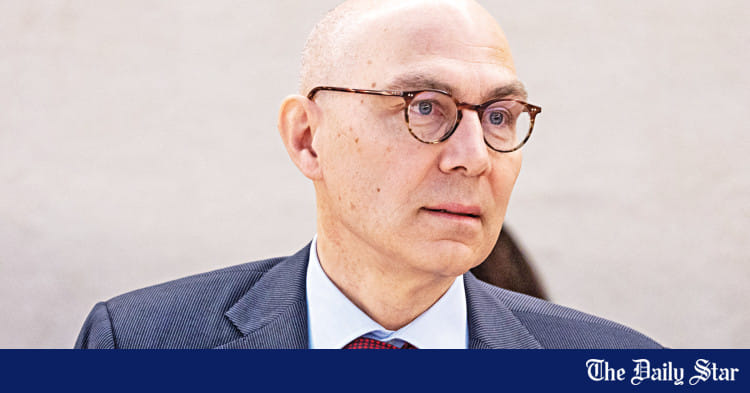Saif
Senior Member
- Joined
- Jan 24, 2024
- Messages
- 17,330
- Likes
- 8,373
- Nation

- Residence

- Axis Group


Trump urges Musk to be more aggressive in bid to shrink US government
US President Donald Trump on Saturday urged billionaire Elon Musk to be more aggressive in his efforts to shrink the federal government despite uproar over layoffs and deep spending cuts. “Elon is doing a great job, but I would like to see him get more aggressive,” Trump posted all in
Trump urges Musk to be more aggressive in bid to shrink US government
REUTERS
Published :
Feb 22, 2025 21:22
Updated :
Feb 22, 2025 21:22

Elon Musk listens to US President Donald Trump speak in the Oval Office of the White House in Washington, DC, US, Feb 11, 2025. Photo : REUTERS/Kevin Lamarque
US President Donald Trump on Saturday urged billionaire Elon Musk to be more aggressive in his efforts to shrink the federal government despite uproar over layoffs and deep spending cuts.
“Elon is doing a great job, but I would like to see him get more aggressive,” Trump posted all in uppercase letters on his Truth Social platform. “Remember, we have a country to save, but ultimately, to make greater than ever before. MAGA!”
Musk’s Department of Government Efficiency, or DOGE - an entity created by Trump - has swept across federal government agencies, firing tens of thousands of federal government workers from scientists to park rangers, mostly those on probation.
REUTERS
Published :
Feb 22, 2025 21:22
Updated :
Feb 22, 2025 21:22
Elon Musk listens to US President Donald Trump speak in the Oval Office of the White House in Washington, DC, US, Feb 11, 2025. Photo : REUTERS/Kevin Lamarque
US President Donald Trump on Saturday urged billionaire Elon Musk to be more aggressive in his efforts to shrink the federal government despite uproar over layoffs and deep spending cuts.
“Elon is doing a great job, but I would like to see him get more aggressive,” Trump posted all in uppercase letters on his Truth Social platform. “Remember, we have a country to save, but ultimately, to make greater than ever before. MAGA!”
Musk’s Department of Government Efficiency, or DOGE - an entity created by Trump - has swept across federal government agencies, firing tens of thousands of federal government workers from scientists to park rangers, mostly those on probation.









































